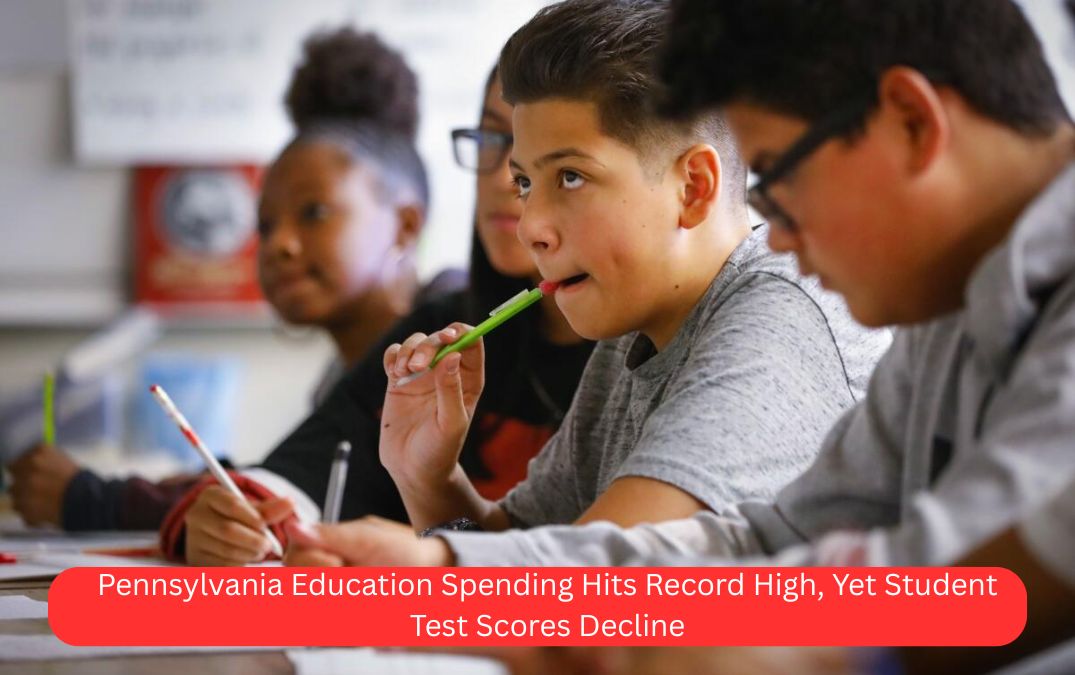A recent Commonwealth Foundation study reveals that despite record-breaking education spending in Pennsylvania, student test scores continue to decline.
In the 2023–24 school year, the Keystone State’s total education expenditure reached $38.6 billion, but improvements in student achievement remain elusive.
What Happened
Pennsylvania’s education spending soared to unprecedented levels in 2023–24, with a total of $38.6 billion invested from federal, state, and local sources. Per pupil spending averaged $23,061, the highest recorded to date. The state’s 2024-25 budget further increased education funding by $1.1 billion, bringing the state’s share to a historic $16.8 billion—marking a 66% rise over the past decade.
Despite this surge in funding, standardized test scores have not improved. The additional resources have yet to translate into measurable academic gains for Pennsylvania’s public school students.
Key Details
| Category | Amount (2023-24) | Change / Notes |
|---|---|---|
| Total Education Spending | $38.6 billion | From federal, state, and local sources |
| Per Pupil Spending | $23,061 | Record high |
| State Education Budget | $16.8 billion | $1.1 billion increase from prior year |
| Increase Over 10 Years | 66% | State education budget growth |
| School District Reserves | $7.4 billion | Up $557 million from previous year |
Auditor General Timothy DeFoor reported concerns in 2023 about some school districts allegedly misusing their general fund reserves. These districts were accused of manipulating funds through a “shell game” to justify raising taxes, which has raised transparency and accountability issues.
Reactions or Statements
The Commonwealth Foundation’s study highlights a critical disconnect between increased education funding and student performance. Education advocates and taxpayers question the effectiveness of current spending strategies, calling for a thorough review of resource allocation and educational outcomes.
Auditor General DeFoor’s office continues to monitor school district financial practices to ensure taxpayer funds are used responsibly and transparently.
Investigation or What’s Next
The Commonwealth Foundation urges policymakers to prioritize reforms that directly impact classroom learning. This includes better financial oversight, improved curriculum standards, and enhanced teacher support.
State officials are expected to review spending policies as part of ongoing efforts to align educational investment with measurable academic improvements.
FAQs
Q1: Why is Pennsylvania spending more on education but seeing lower test scores?
A1: Increased funding has not been paired with effective strategies targeting student learning, leading to minimal gains in test performance.
Q2: What are general fund reserves in school districts?
A2: These are savings held by school districts to manage cash flow or emergencies. Some districts have been criticized for hiding reserves to justify tax increases.
Q3: How much has Pennsylvania’s education budget increased in the last decade?
A3: The state education budget has increased by 66%, reaching $16.8 billion in 2024-25.
Q4: What actions are being taken regarding the misuse of school funds?
A4: The Auditor General’s office is investigating financial irregularities and promoting transparency to prevent misuse.
Q5: What should taxpayers expect moving forward?
A5: Efforts will focus on ensuring education spending translates into improved student outcomes, alongside stricter oversight of school finances.
Summary / Final Takeaway
Pennsylvania’s education system faces a paradox: record-high spending has not yielded better student test scores.
With total education expenditure nearing $39 billion and state funding at an all-time peak, the focus now shifts to accountability, transparency, and targeted reforms to improve academic results.
Taxpayers and educators alike await concrete strategies to ensure investments genuinely benefit Pennsylvania’s students












